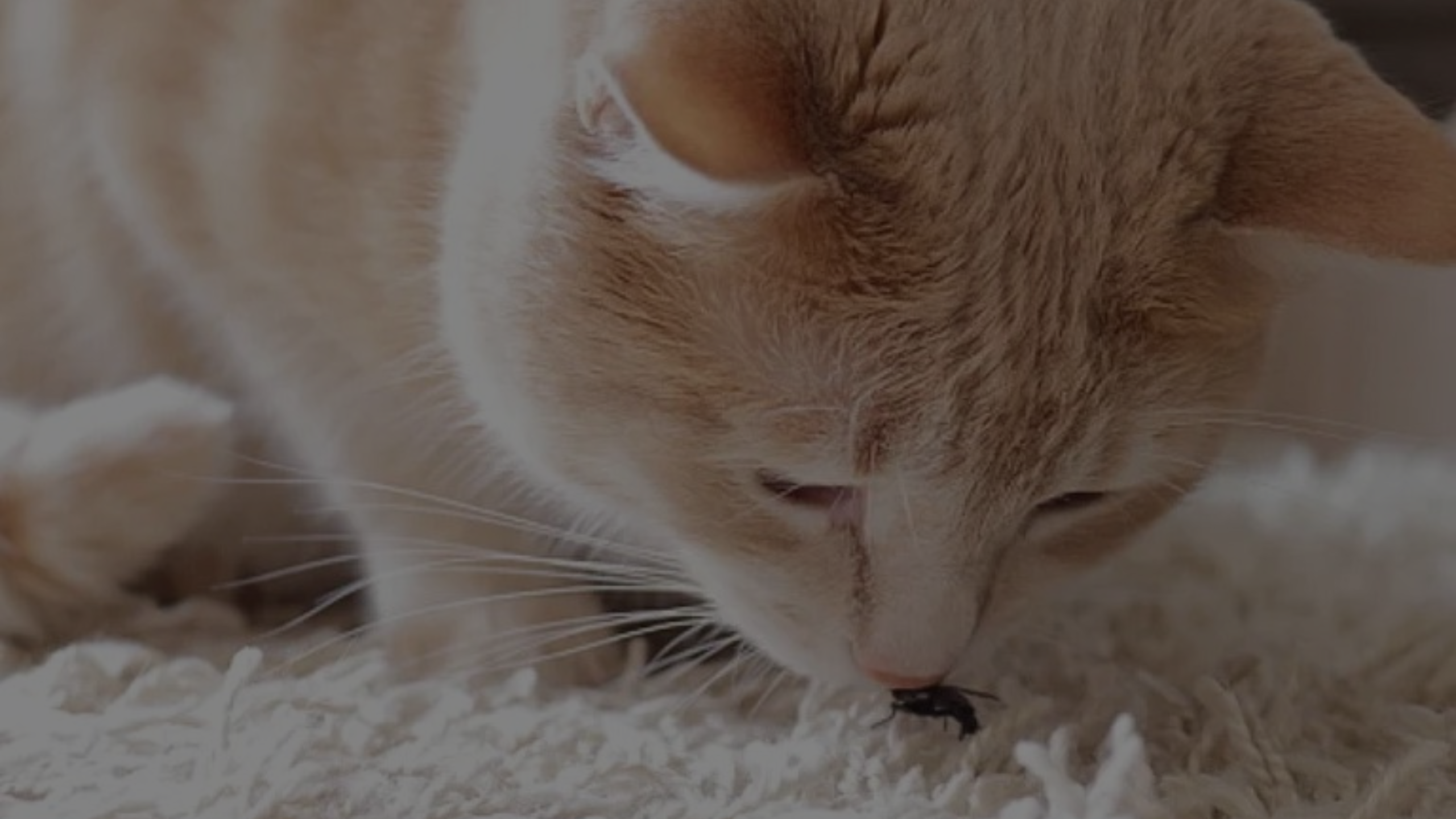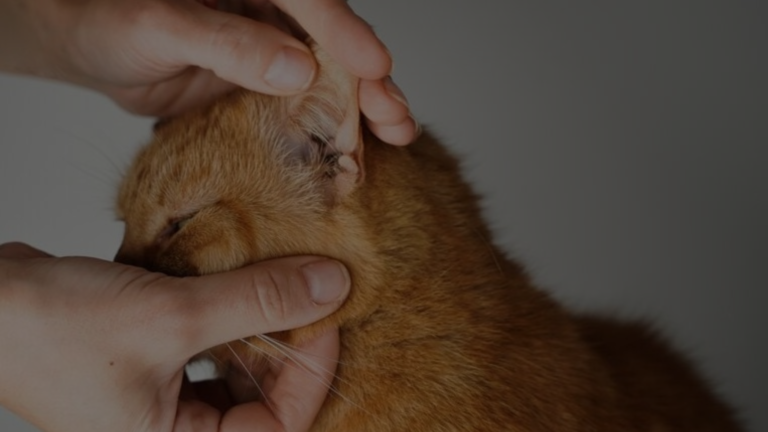Imagine your feline friend playfully batting at a pesky fly, only to snatch it mid-air and devour it with a satisfying crunch. While this might seem like a harmless victory in the battle against the buzzing intruders, a concerning question arises: can my cat get maggots from eating flies?
The answer isn’t a simple yes or no. While it’s true that flies can carry maggots, the risk of your cat developing a maggot infestation from eating them is relatively low. However, understanding the potential dangers and taking preventative measures is crucial for responsible pet ownership.
Understanding Myiasis: When Flies Become Parasites
Myiasis refers to a parasitic infestation caused by fly larvae, better known as maggots. These tiny, white worms thrive on decaying organic matter, including dead tissues and open wounds. But what happens when a cat ingests flies?
Two scenarios are possible:
- False Myiasis: This is the most common outcome. The maggots pass through the digestive system unharmed and are eliminated in the stool. While harmless, seeing maggots in your cat’s poop can be alarming, so consult your veterinarian if you witness this.
- True Myiasis: This is much less common and typically occurs when the maggots hatch inside the cat’s body. This can happen if the cat ingests a large number of flies carrying eggs, or if the eggs are deposited directly on moist areas like the mouth, eyes, or open wounds.

Warning Signs of Myiasis in Cats
While the risk is low, it’s important to be aware of the signs of myiasis in cats:
- Vomiting or diarrhea: This is a common symptom of digestive discomfort, but if maggots are present, it might be accompanied by visible white worms in the vomit or stool.
- Lethargy or weakness: Maggots can deplete essential nutrients and cause discomfort, leading to a lack of energy and general malaise.
- Loss of appetite: The presence of maggots can irritate the digestive system, making your cat hesitant to eat.
- Bad breath: A foul odor emanating from the mouth can indicate maggots multiplying in the oral cavity.
- Unusual discharge: If maggots are present in the eyes or ears, you might notice discharge or inflammation.
- Skin irritation: If the maggots hatch externally, you might see red, inflamed skin, especially around the mouth, eyes, or wounds.

Remember: Early detection and intervention are crucial for treating myiasis successfully. If you suspect your cat might have maggots, seek immediate veterinary attention.
Preventing Maggot Infestation in Your Cat
The best way to protect your feline friend is to prevent them from ingesting flies in the first place. Here are some effective strategies:
- Control the fly population: Keep your home clean and free of food scraps, dirty dishes, and open garbage bins. Use fly traps and screens to keep them out.
- Maintain good hygiene: Regularly clean your cat’s litter box and feeding area. Bathe them occasionally to keep their fur clean and free of attractants like food particles or dirt.
- Address open wounds: If your cat has any open wounds, clean them thoroughly and use a cone to prevent them from licking or chewing, which can attract flies.
- Manage underlying conditions: Certain health issues like diabetes or urinary tract infections can make cats more susceptible to fly infestations. Consult your veterinarian if you suspect your cat has any underlying health concerns.

Can My Cat Get Maggots From Eating Flies?
Feline fly-catching is entertaining, but the question looms: maggots from flies?
The answer: unlikely, but not impossible. Flies can carry maggots, but most pass harmlessly through your cat’s digestive system. However, keep an eye out for:
- False Myiasis: Maggots in the stool (rare, no need to panic).
- True Myiasis: Less common, but watch for lethargy, vomiting (sometimes with maggots), loss of appetite, bad breath, unusual discharge, or inflamed skin. Seek immediate veterinary attention if suspected.
Is It Common for Cats to Get Maggots?
Cats rarely get maggots just from eating flies. Those little fly hitchhikers usually get flushed out harmlessly. But watch out for:
- Poop maggots: You might see them, but it’s usually not a big deal.
- Sick cat + maggots: If your cat seems unwell and has maggots, visit the vet ASAP. This could be more serious.
More common are maggots in open wounds. Keep wounds clean and covered to avoid attracting flies and their unwelcome offspring.
Can Cats Catch Anything From Eating Flies?
While occasional fly-catching is harmless, there are potential risks to be aware of:
- Parasites: Flies can carry parasites, but your cat’s stomach acid usually acts as a shield.
- Bacteria: Flies could harbor bacteria, but it’s rare and usually neutralized by stomach acid.
- Viruses: Uncommon for flies to spread viruses like distemper, as direct contact is the main culprit.
- Allergies: Some cats might be allergic to fly proteins, causing reactions like sneezing or itching.
- Chemical poisoning: Avoid using harmful chemicals around your cat, as ingesting a poisoned fly could be dangerous.
- Choking hazard: While unlikely, very small kittens or cats with health issues could choke.
Additional Considerations
While the risk of myiasis from eating flies is low, it’s important to remember that cats are natural hunters and may instinctively eat insects. If you’re concerned about your cat’s fly-catching habits, consider:
- Providing enrichment: Offer your cat plenty of toys, scratching posts, and climbing structures to redirect their hunting instincts towards more positive outlets.
- Supervised outdoor time: If your cat enjoys the outdoors, ensure they have access to a secure, enclosed area where they can safely explore and chase insects without ingesting them.

By understanding the risks, taking preventative measures, and seeking veterinary attention if necessary, you can help your cat stay healthy and maggot-free, allowing them to enjoy their playful antics without facing unwanted consequences.
Resources & References
FAQs About Cats, Flies, and Maggots:
My cat swallowed a fly, will they get maggots?
It’s unlikely. In most cases, flies ingested by cats pass through the digestive system harmlessly. However, if you see maggots in your cat’s vomit or stool, seek veterinary attention immediately.
Can maggots hatch inside my cat if they eat flies?
It’s rare but possible. This usually happens if the cat ingests a large number of flies carrying eggs or if the eggs are deposited directly on moist areas like the mouth, eyes, or wounds. Look for signs like lethargy, vomiting, or skin irritation, and consult your vet if worried.
How can I tell if my cat has maggots?
Signs include vomiting or diarrhea with visible maggots, lethargy, loss of appetite, bad breath, unusual discharge from eyes or ears, and red, inflamed skin. Early detection is crucial, so seek immediate veterinary help if you suspect any of these.
How can I prevent my cat from getting maggots from flies?
Control the fly population by keeping your home clean, using fly traps, and maintaining good hygiene around your cat’s litter box and food area. Manage open wounds and address any underlying health concerns.
Should I be worried if my cat catches and eats flies outdoors?
While outdoor cats might naturally eat insects, excessive fly-catching could indicate underlying issues like boredom or nutritional deficiencies. Provide enrichment and consider supervised outdoor time to minimize the risk of ingesting too many flies.
What should I do if I see maggots on my cat’s skin?
Don’t try to remove them yourself! Maggots can burrow deeper, causing further harm. Contact your veterinarian immediately for professional evaluation and treatment.
Remember: This information is for educational purposes only and shouldn’t replace professional veterinary advice. Always consult your vet for any concerns about your cat’s health.







